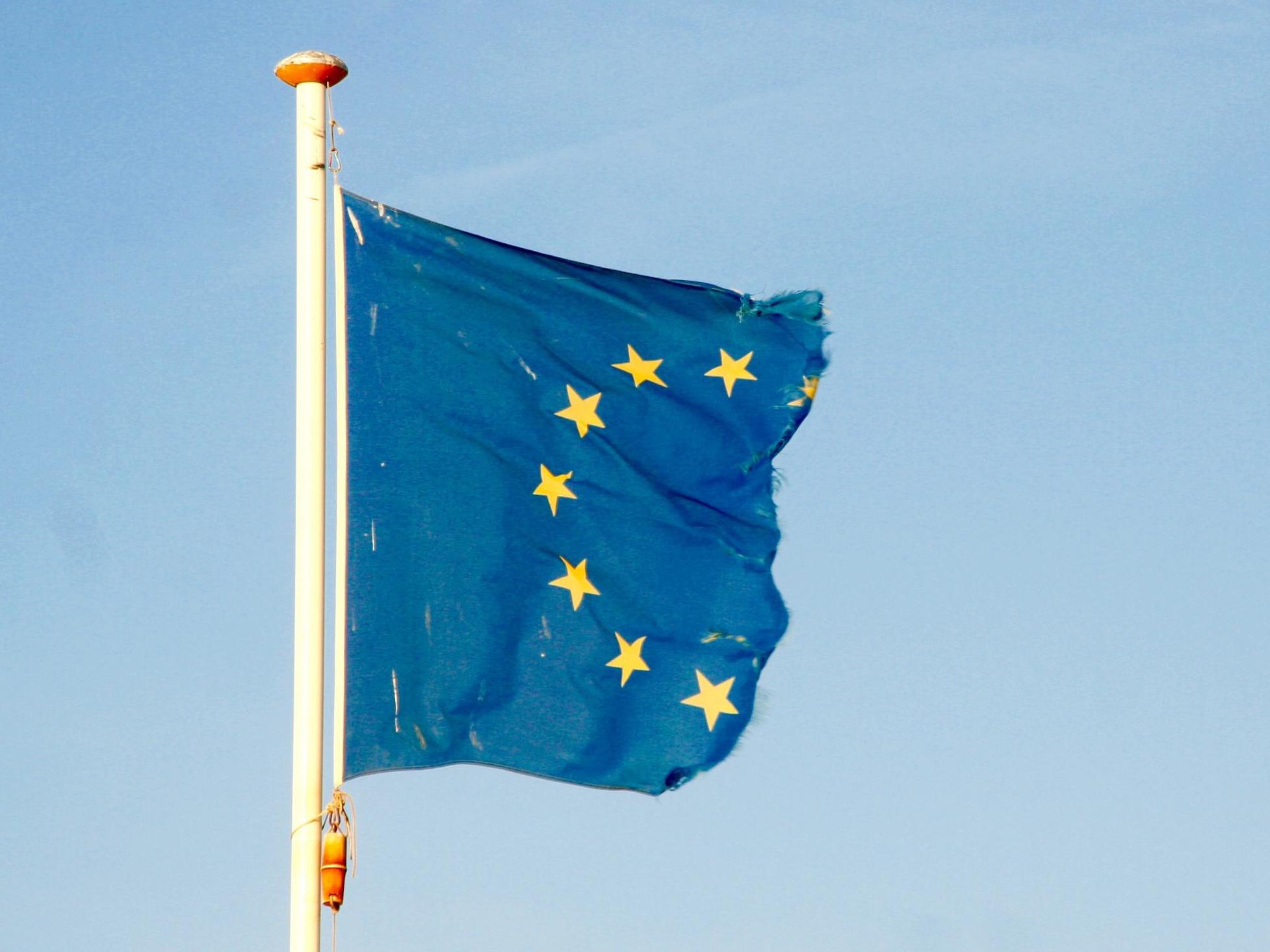European elections: Majority of voters in EU countries predict union will ‘fall apart’ within 20 years, poll shows
Pessimism over long term survival of bloc highest among voters in Slovakia and France

Support for the European Union among citizens in its member states is at a record high, but at the same time so is the belief the bloc will have disintegrated within 20 years, polling ahead of this month’s election shows.
The survey by the European Council on Foreign Relations (ECFR) shows Slovakian voters have a particularly pessimistic view regarding the future of the union, with 66 per cent saying they thought it was “realistic” to say the “EU will fall apart in 10 – 20 years”.
This was followed by France, where 58 per cent of those polled agreed and only 29 per cent – less than a third – said such a scenario was not realistic.
The majority of people surveyed in Germany, Italy, Austria, Greece, the Netherlands, the Czech Republic, Poland and Romania also took a negative outlook over the next two decades.
Of the 14 countries polled by YouGov for the ECFR, positivity about the future of the union was only reported by voters in Sweden, Spain and Denmark.
The ECFR said the figures illustrated a “paradox” ahead of the election, as they also reported two-thirds of Europeans currently believe the EU “is a good thing”, which they said was the largest share since 1983.
The report indicates the survey results may reflect fear and uncertainty over the future of the bloc, rather than what voters wanted to see happen over the next 20 years.
“The surge in support for EU membership is undoubtedly a reaction to an uncertain environment,” the ECFR analysis of the poll said.
“We only come to appreciate the value of the European security net as we come close to losing it. Just look at the United Kingdom, where previously complacent pro-Europeans are only now coming together, almost three years after the Brexit referendum, to mobilise in favour of the EU.”
The poll also asked citizens in the same 14 countries how likely they thought an armed conflict between two member states was, with three in ten voters saying they thought war between EU countries is possible.
Despite the EU being among the world’s best known peace-keeping enterprises, many voters took a dim view of the future.
The poll revealed 34 per cent of French people thought a European war could happen, while 27 per cent of Germans shared the sentiment.
“For these people, the reality of contemporary Europe is one of competition and conflict rather than cooperation. It is not that they necessarily think that war will break out tomorrow, but that there is a logic of conflict in a deeply divided continent,” the analysis said.
The poll was conducted by YouGov in March 2019, with 1,000 samples for each of 14 countries, except Sweden where it was 2,000, and Denmark 1,400, and Greece and Slovakia 500.
The full list of countries surveyed is: Austria, the Czech Republic, Denmark, France, Germany, Greece, Hungary, Italy, the Netherlands, Poland, Romania, Slovakia, Spain, and Sweden.
Join our commenting forum
Join thought-provoking conversations, follow other Independent readers and see their replies
Comments
Bookmark popover
Removed from bookmarks